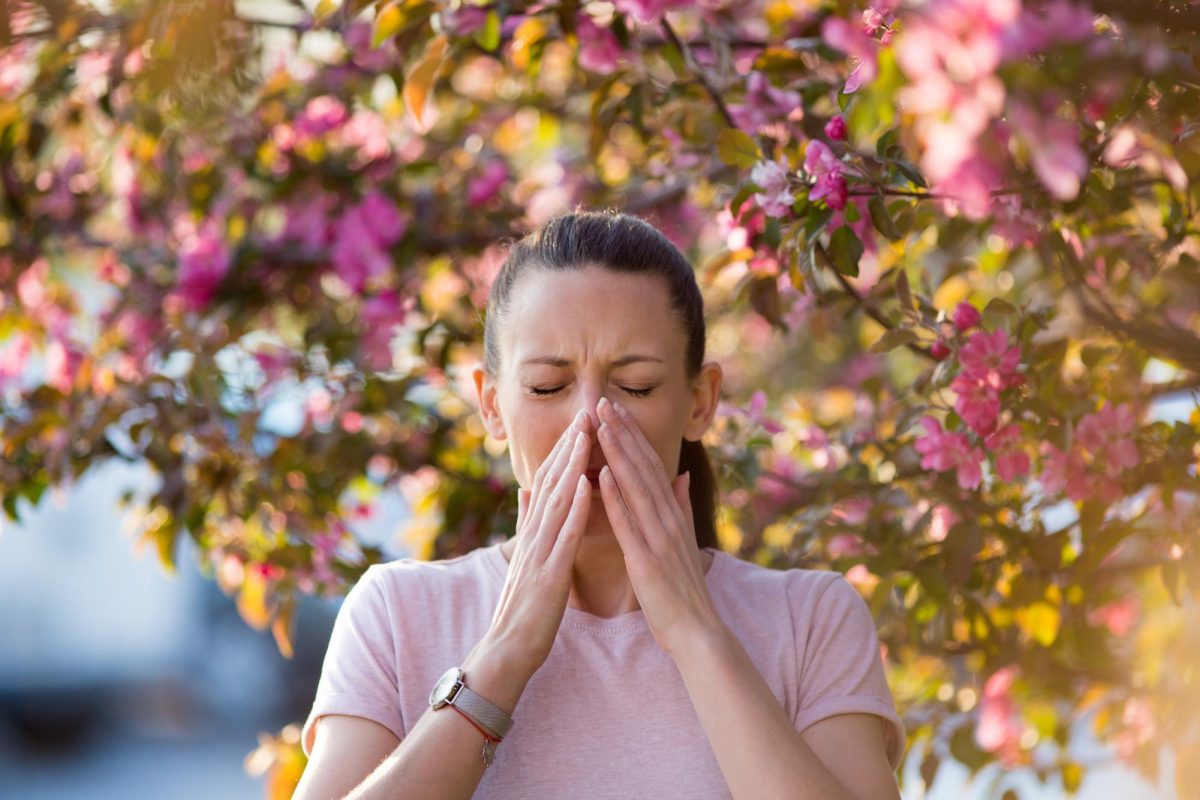As the weather gets warmer and beautiful flowers start to bloom, many people start to have symptoms of spring allergies. These can include sneezing, itchy eyes, or a runny nose. Spring allergies can make the season less enjoyable. As a European exchange student staying in Indiana for the first time, I had to battle with various spring allergies myself.
According to MedicalNewsToday, one of the main causes of spring allergies is pollen. As many plants start to bloom in the spring, they release pollen into the air. This pollen can trigger allergic reactions in individuals who are sensitive to it. Trees, grasses, and weeds are the most common sources of allergenic pollen in the spring. The immune system of allergy sufferers mistakenly identifies pollen as a threat and releases chemicals like histamine to combat it, leading to symptoms like itching, sneezing, and congestion, according to the Mayo Clinic.
Yale Medicine says mold spores can also cause allergies in the spring. Mold grows in damp places, like after spring showers. Mold spores can make people with allergies sneeze, cough, or wheeze.
According to WebMD, there are ways to manage and relieve spring allergies. To combat allergies, limit exposure to allergens. Close windows during high pollen counts, use air filters, and shower and change clothes after spending time outdoors. Pollen counts are highest in the morning, so limit outdoor activities then.
Over-the-counter antihistamines and decongestants can also help, according to Allergist. Antihistamines block histamine, which causes itching and sneezing. Decongestants relieve congestion and nasal pressure. Nasal corticosteroid sprays reduce nasal inflammation and relieve symptoms like nasal congestion and sneezing.
For those with more severe allergies, allergen immunotherapy may be a treatment option, according to the American College of Allergy Asthma and Immunology. Allergen immunotherapy also called allergy shots, involves regular injections of allergens to help the immune system become less sensitive to allergens over time. This treatment can help reduce allergy symptoms and improve the quality of life for allergy sufferers.
In addition to medical treatments, there are some natural remedies that can help alleviate spring allergy symptoms. Local honey can help build up immunity to local pollen. Nasal irrigation with a saline solution can help clear nasal passages and reduce congestion. Some people find relief with herbal supplements like butterbur and quercetin, which have anti-inflammatory properties.
It is important to consult with your healthcare provider before starting any new treatment for allergies. Some natural remedies may interact with medications or have side effects. Your healthcare providers can help you find the best treatment for your symptoms. It can also be helpful to monitor pollen counts in your area and plan outdoor activities accordingly. Many weather websites, newspapers, and apps provide daily pollen forecasts so you can prepare for high pollen days and take steps to reduce your exposure.
Staying hydrated and maintaining a healthy diet can also help support your immune system and reduce allergy symptoms. Eating foods high in vitamin C, like citrus fruits and berries, can help boost your immune system. Drinking plenty of water can help thin mucus and reduce congestion. In some cases, wearing a mask while doing outdoor activities, like gardening or mowing the lawn, can help reduce your exposure to allergens. This can be especially helpful during days with high pollen counts.
Spring allergies can be annoying, but there are ways to manage them. Avoid allergens, take over-the-counter medications, consider allergen immunotherapy, and explore natural remedies. Remember to consult with a healthcare provider for personalized advice on managing spring allergies. Overall, being proactive about managing your spring allergies can make the season more enjoyable. By taking steps to reduce exposure to allergens, using medications as needed, and exploring natural remedies, you can find relief from spring allergy symptoms. Don’t hesitate to consult with a healthcare provider for personalized advice and treatment options.








